[Editor’s note: This story discusses grief and bereavement following the violent death of a teenager by assault. It may be triggering to some readers.]
‘We need a holistic approach, and if [we] can’t have it, nothing is going to change.’ — 15-year-old Grade 9
Just over a week after his murder in April, The Tyee received an email from one of Ethan Bespflug’s former teachers compiling letters written by her students.
The letters were the responses from ninth and 10th graders to the stabbing and death of 17-year-old Bespflug after an attack on a Surrey bus.
“I couldn't simply walk into the classroom and teach as if it was another normal day,” said the students' English 9 and 10 teacher. “I believed not directly addressing the event would perpetuate the concerning trend of normalizing violence.”
So, she read one of the news articles in class and opened discussion. As a class they decided to write letters.
“I had never realized how we brushed it off as normal until we talked about it in school,” said Farhan, 14.
The teacher expressed the students’ dismay about those in power seeming out-of-touch with real solutions to curbing violence in the community.
“Ethan could still be with us if the people in power actually acknowledged what is going on within the cities,” said Mia, 15. “I’m not blaming anyone for this but I’m sure holding everyone accountable,” said Grade 10 Loren, 16.
Premier David Eby said the B.C. public safety minister had communicated with the federal government about a national response to public violence, and that discussions about upping patrols with police and transportation organizations had taken place.
But outside formal policy approaches, the students — who didn’t know Bespflug personally — had candid and emotionally astute responses to the roots of violence in society. The ongoing concerns about safety and violence in the community resonate through the writing.
We share the letters below, in dialogue with comment from John Dube, a bereavement counsellor working in traumatic grief and loss who spoke with The Tyee about how these issues effect youth. (Use the arrows to the right and left of the three sets of letters to scroll.)
We’ve run the letters with the students first names only, if they chose to include them, and with the permission of Bespflug’s mother, Holly. The name of the school has been removed to protect the students’ identities.
‘Growing up I never thought violence really ever ‘existed’ or I thought it wouldn’t affect me’
After the stabbing, Kaiden Mintenko, 20, was charged with second-degree murder of Bespflug, following an investigation into the homicide.
Though not all homicides are murders, murder is a form of homicide. Second-degree murder is a killing that is deliberate, but not planned.
Dube likened the impact of homicide on a community to the experience of not thinking about getting into a car accident until we see one.
While the students didn’t know Bespflug — the death impacted their everyday lives and sense of safety dramatically. One family’s loss becomes the community’s loss, Dube notes.
“It tells us, our community, that there is the possibility of not being safe,” he says. “It reminds us of our own vulnerability. These are very hard conversations to have,” adds Dube.
Dube notes teenagers will often grieve with each other, not necessarily with adults — but how important it is to talk with teenagers about bereavement.
The teacher said the discussion provided an opportunity to offer emotional support, and for the students to start to process their feelings.
An adult can give “hope, direction and communication about what grief is, what loss means,” Dube says.
‘We are scared to go outside because the violent happening created fear in our mind’
“It’s the ‘It takes a village to raise a child,’ and when there’s a homicide in the village, how can the village then raise a child if the village itself is dangerous?” Dube said. Parents can’t be around their kids all day to protect them, he adds.
The students expressed the difficulty of navigating their own fears over being out in the world, taking public transit or walking in their neighbourhood, and the related stressors of how to handle the formerly everyday experiences of their lives.
“It hurts to know my parents have to be careful letting me walk to school,” said one. “I worry for my younger brother day and night hoping he never ends up as the result of violence here.”
Dube recommends adults strategize with teenagers about how they can feel more safe in their community. Examples include picking them up after school, having them check in when they’re out with friends, or even backing off when they say they feel smothered.
Dube says these are “scary, hard, difficult conversations,” adding we still live in a death phobic society.
“We still struggle about the finiteness of our own lives. And when that life is taken away by somebody, it really shakes us to the core. We really need to create space for people to come to grips with that.”
‘It’s common sense that anger comes from mental health issues’
Beyond expressions of fear, students pulled back the curtain to what they saw to be at the root of the problem.
One mentioned a book about somebody suffering in silence. “He gets tormented by his peers,” said the 15-year-old Grade 9. “This isn’t just painful to read, but heartbreaking that I felt like crying on how he is doing nothing about his pain.”
“If we deal with mental health issues earlier and before they get worse, it can be easy to prevent constant violence,” said Jasmine. “We can do so much more for our people.”
Perhaps this was the most striking aspect of the letters — the students’ ability to offer strength and insight through their grief, fear and anger.
“We could have prevented this,” said Mia. ![]()
Read more: Rights + Justice, Education




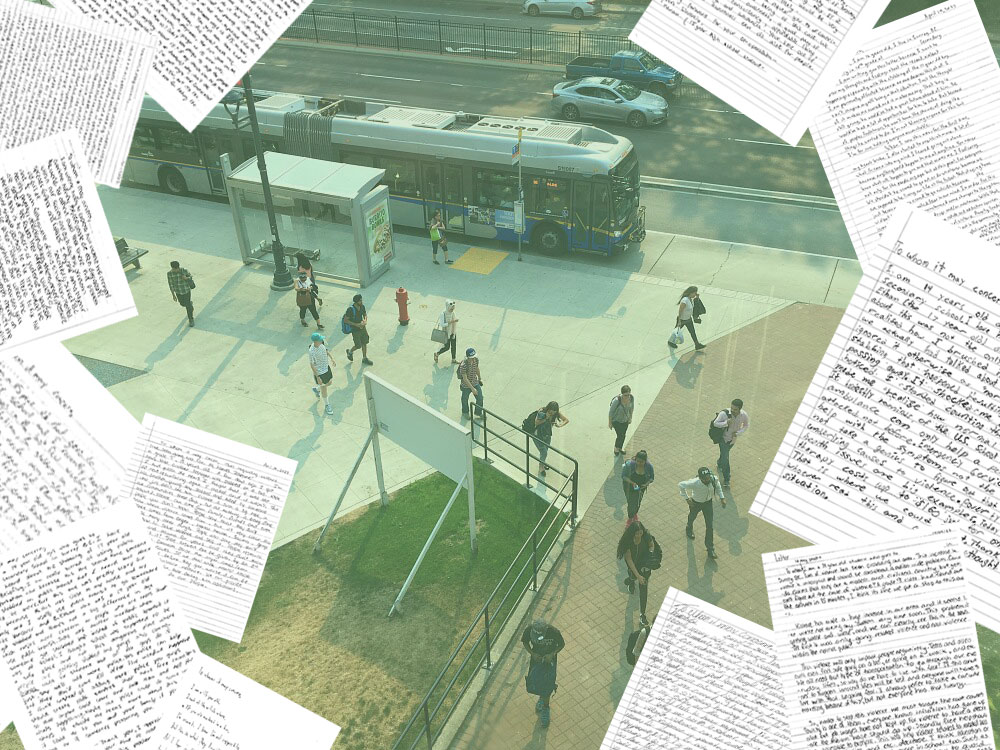
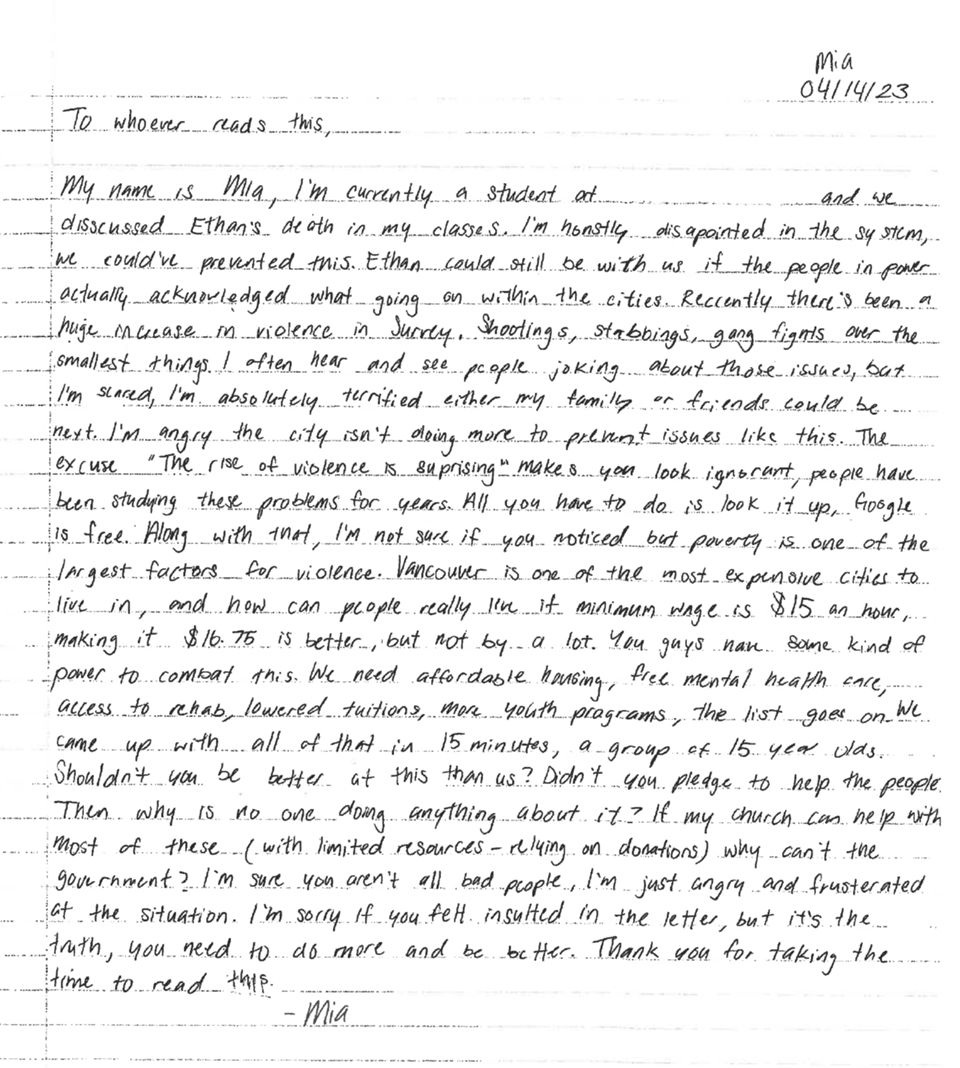
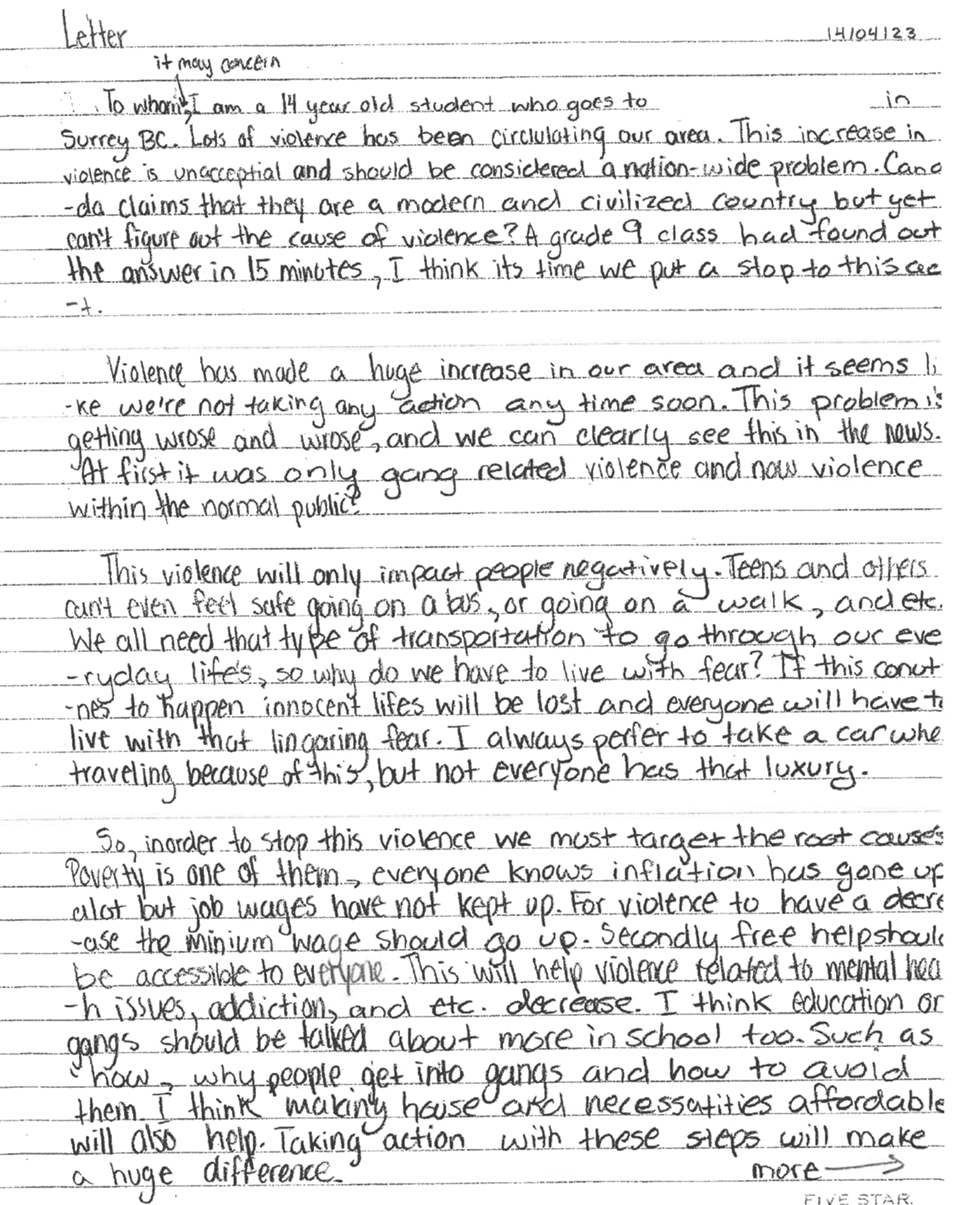
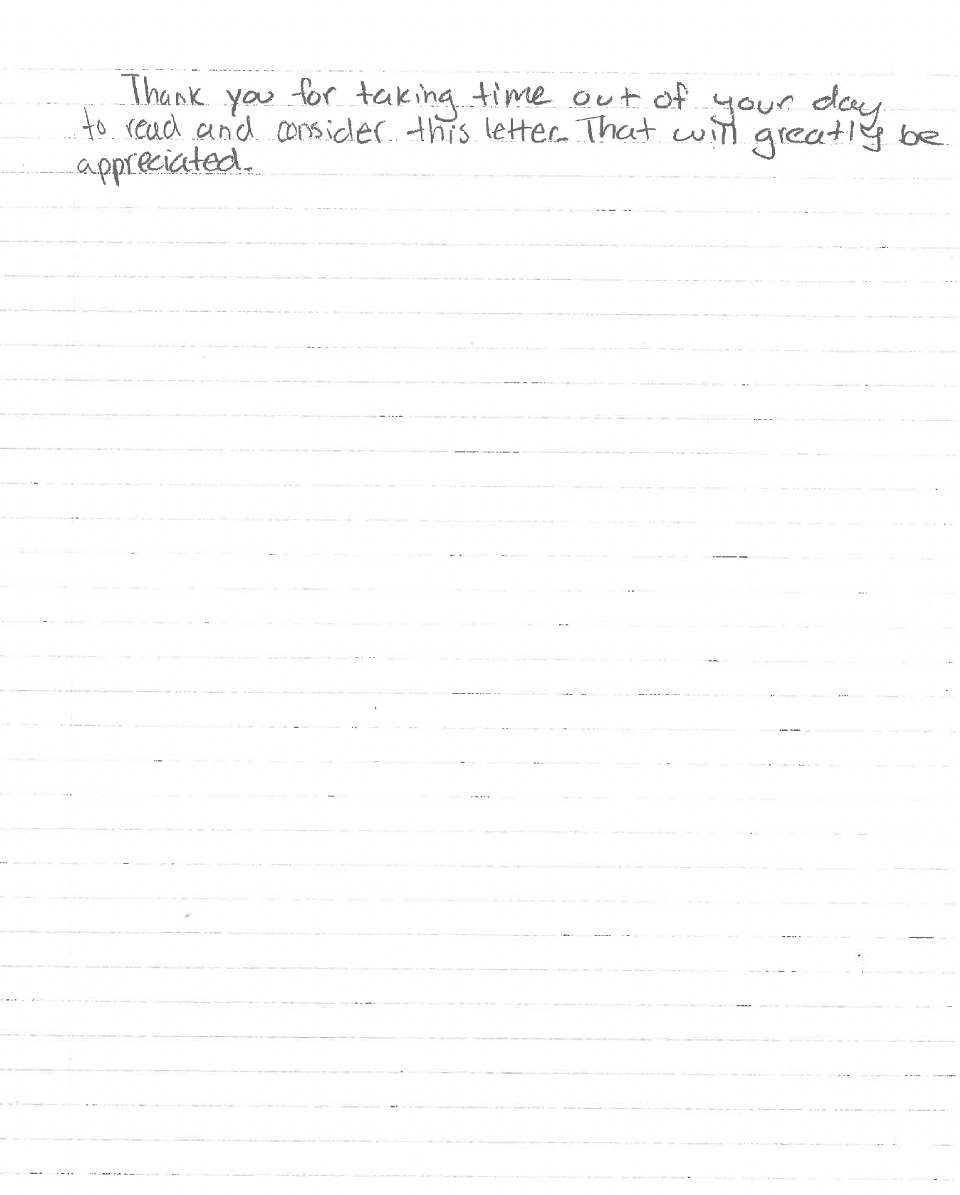
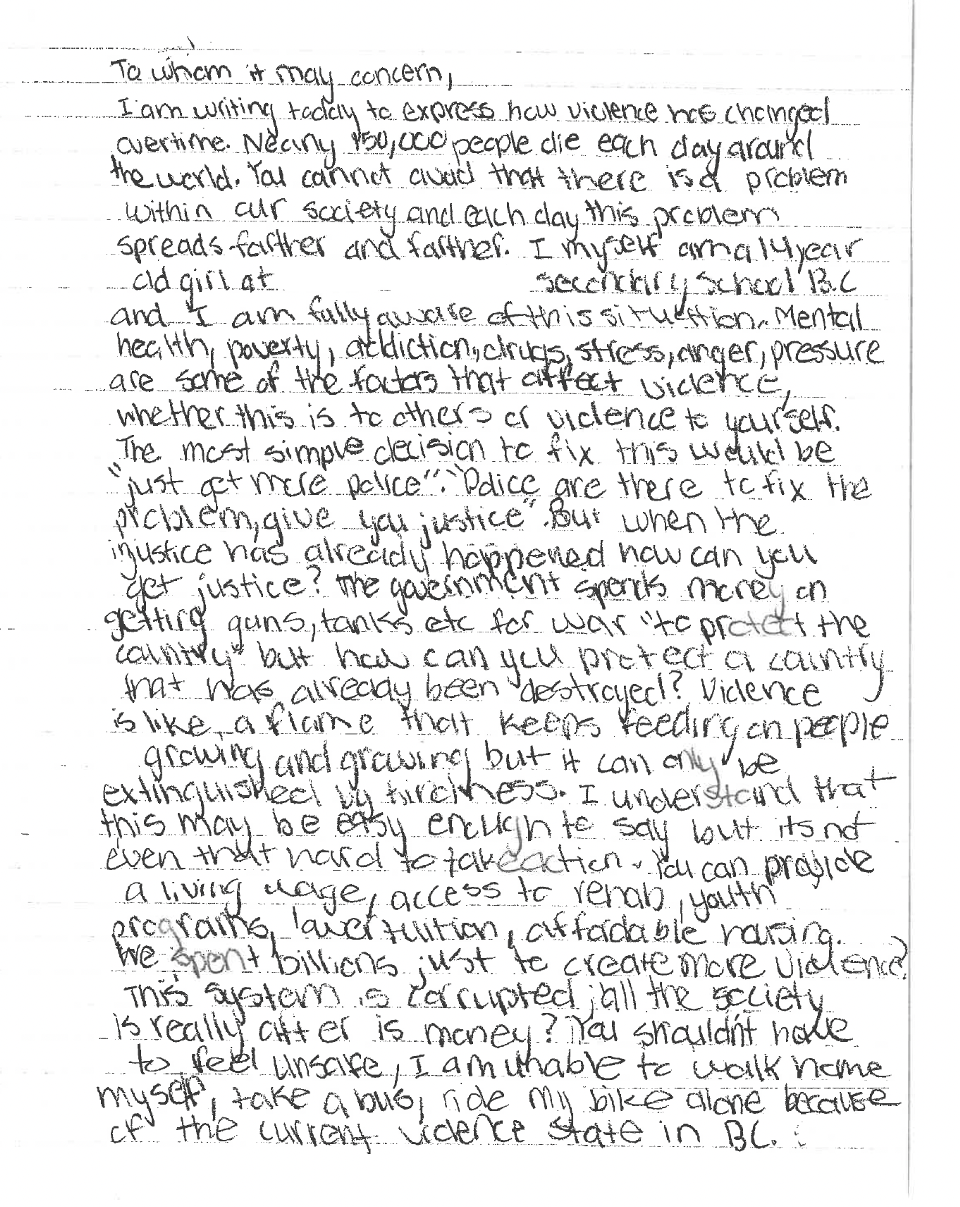
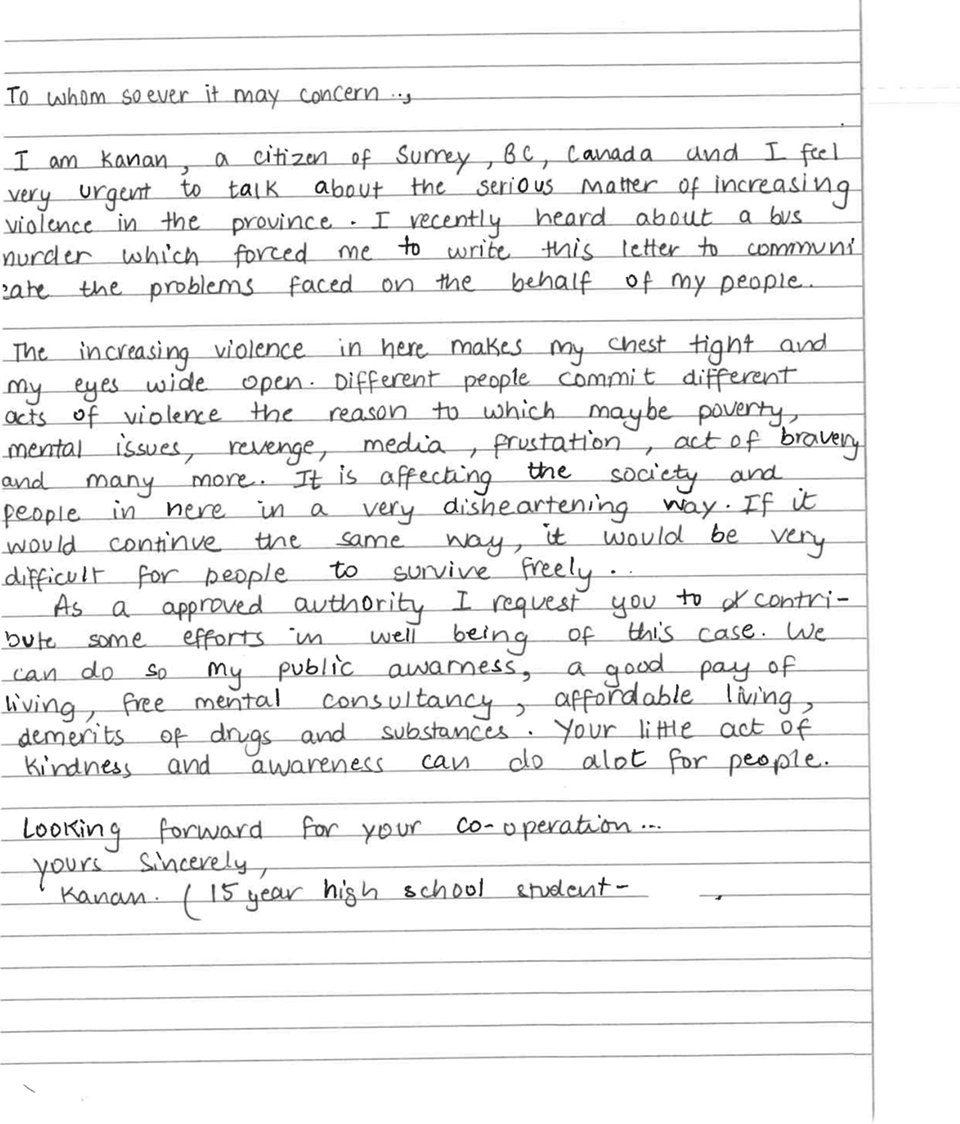
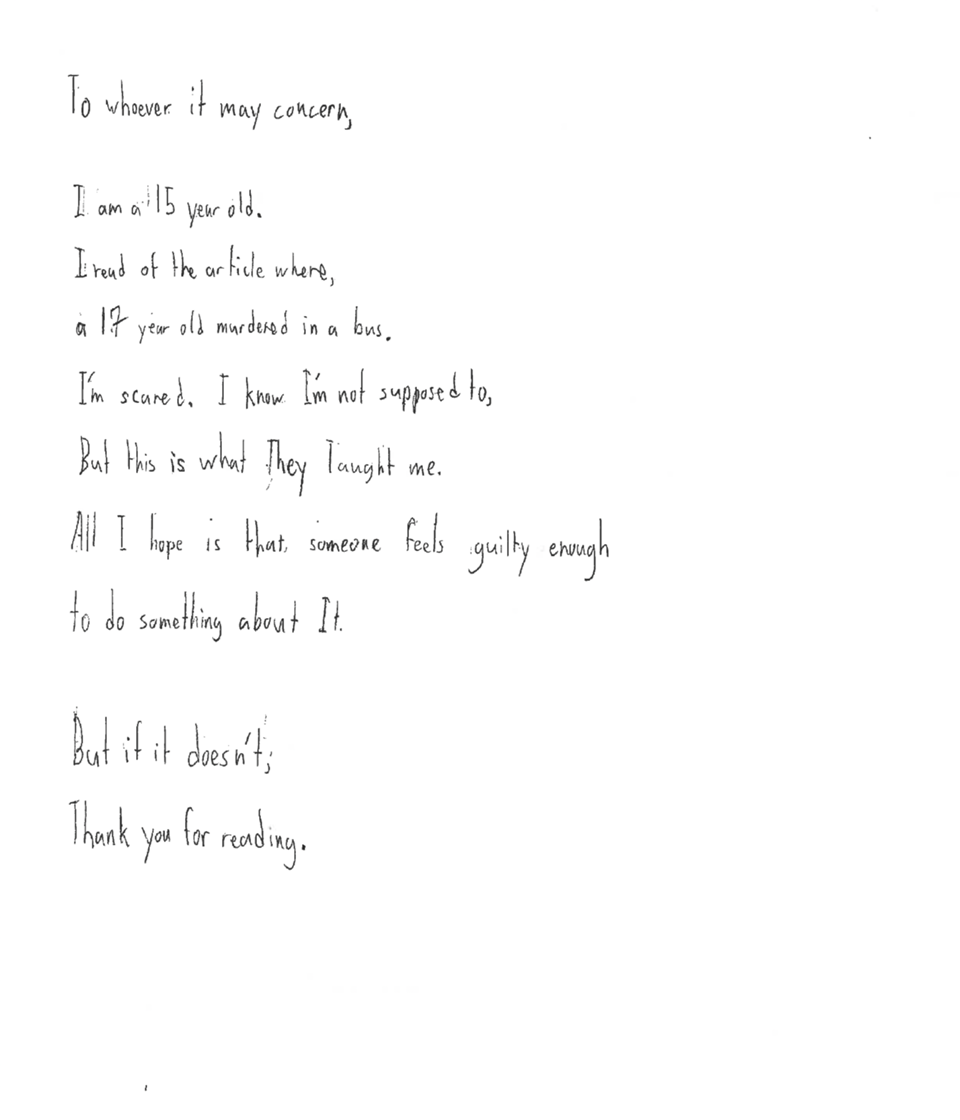
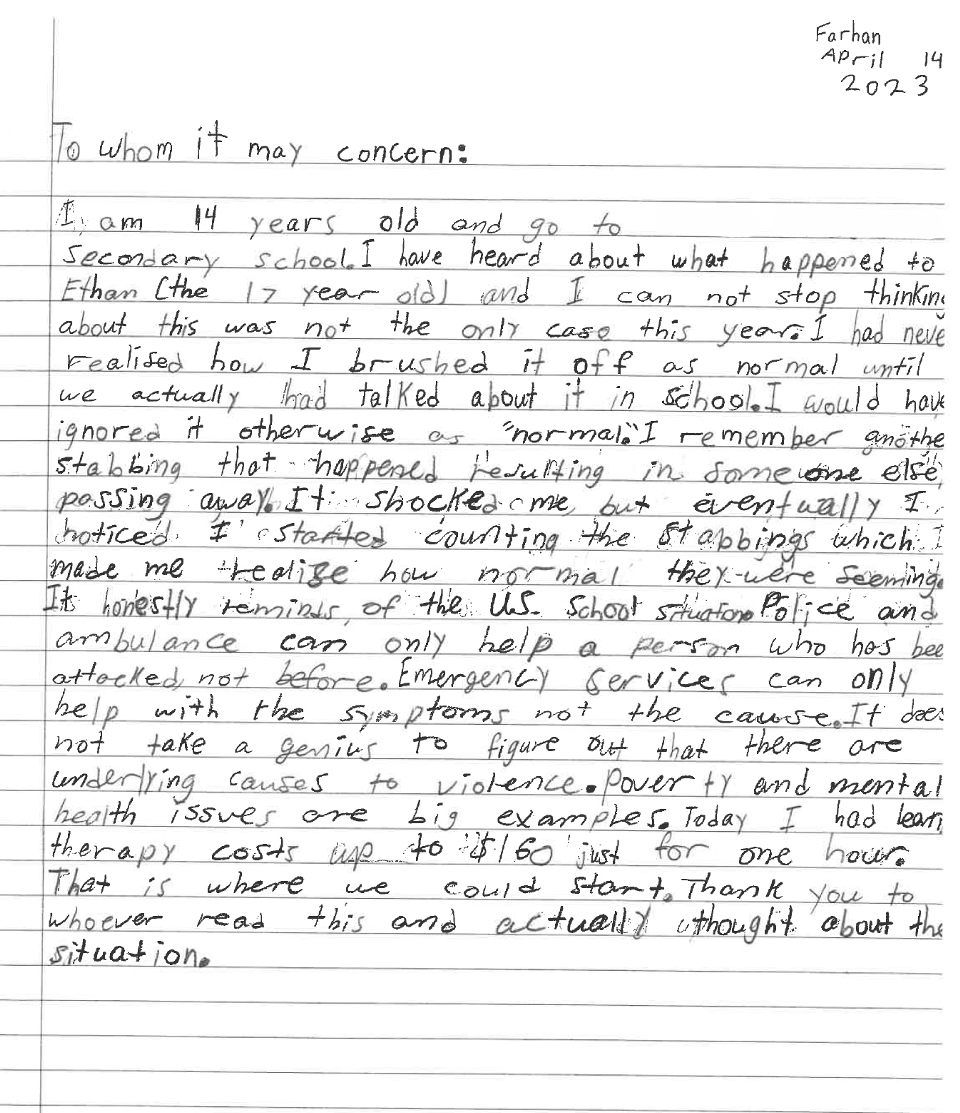
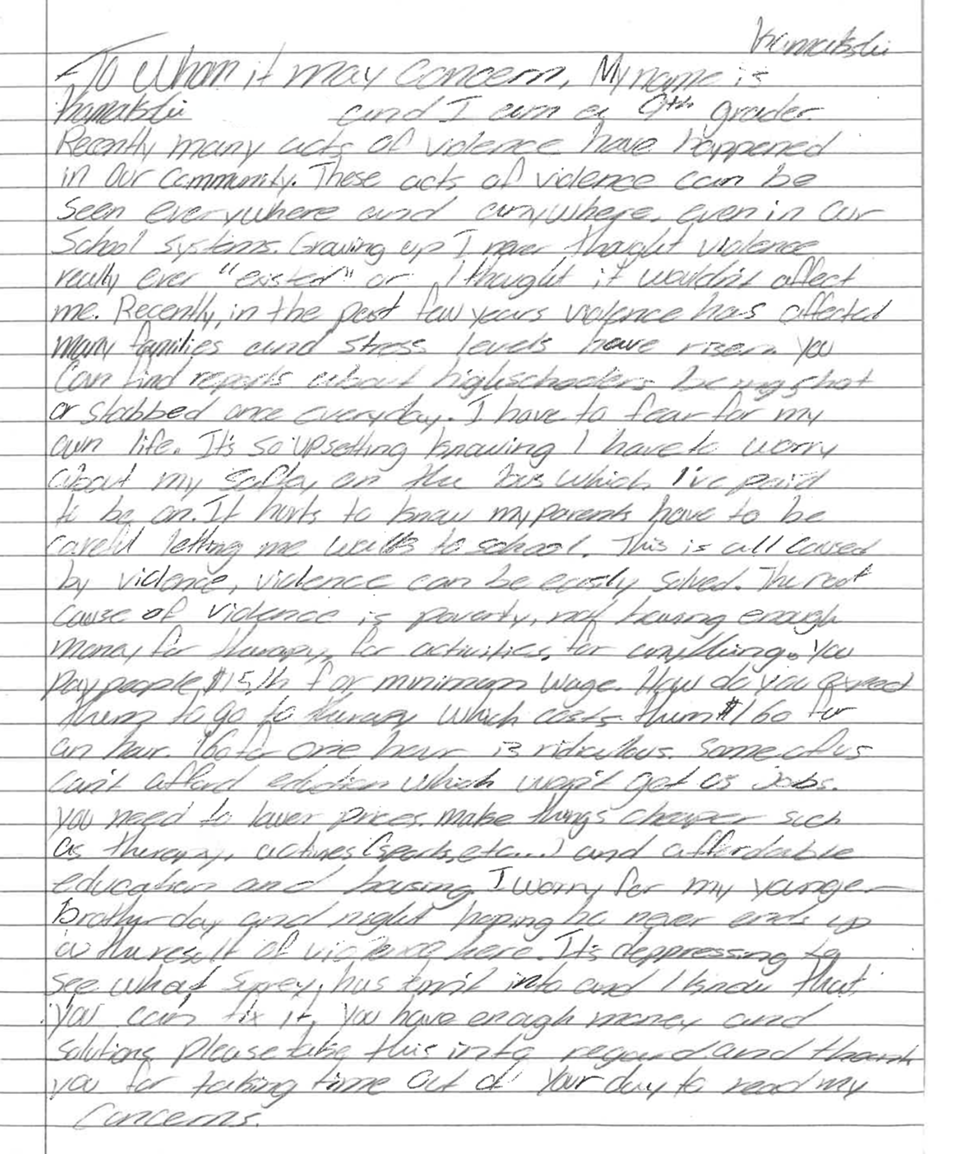
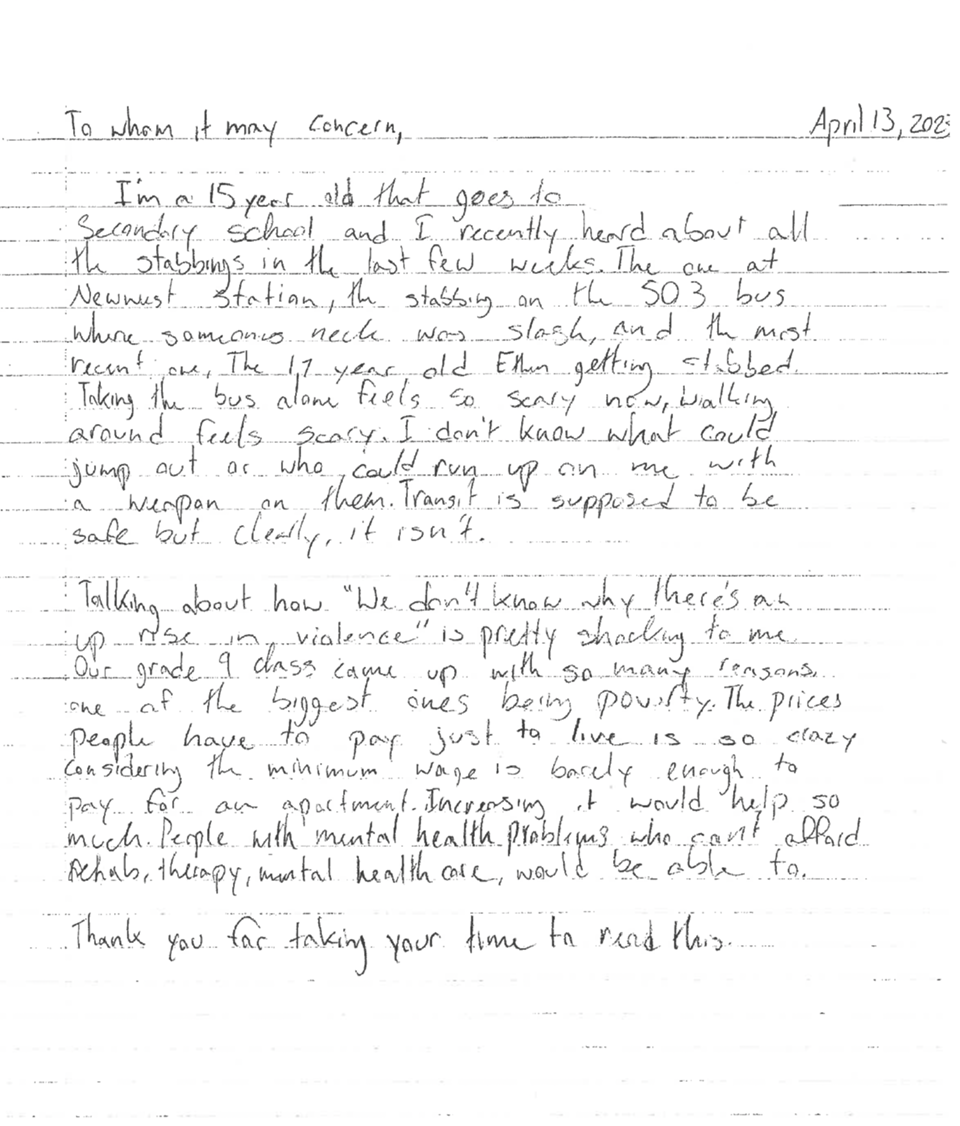
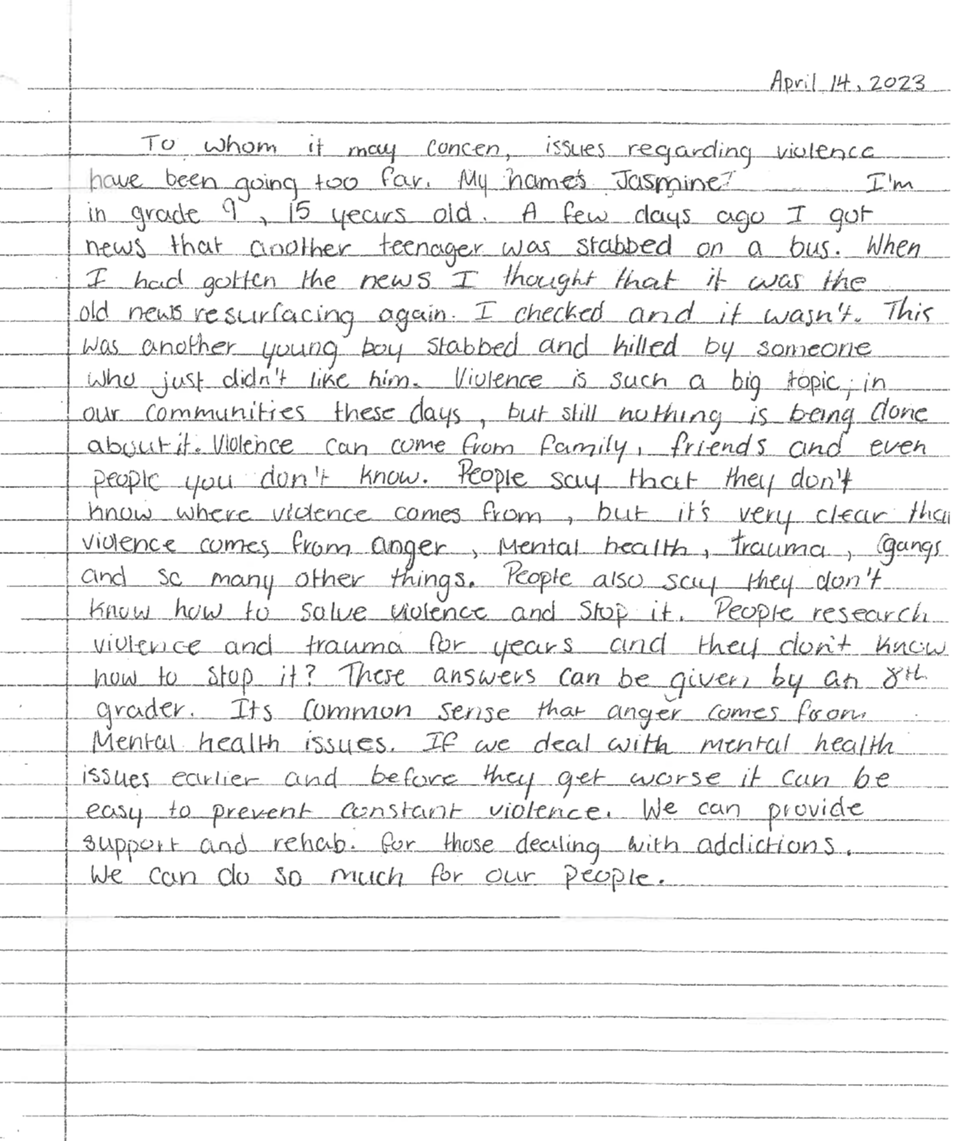
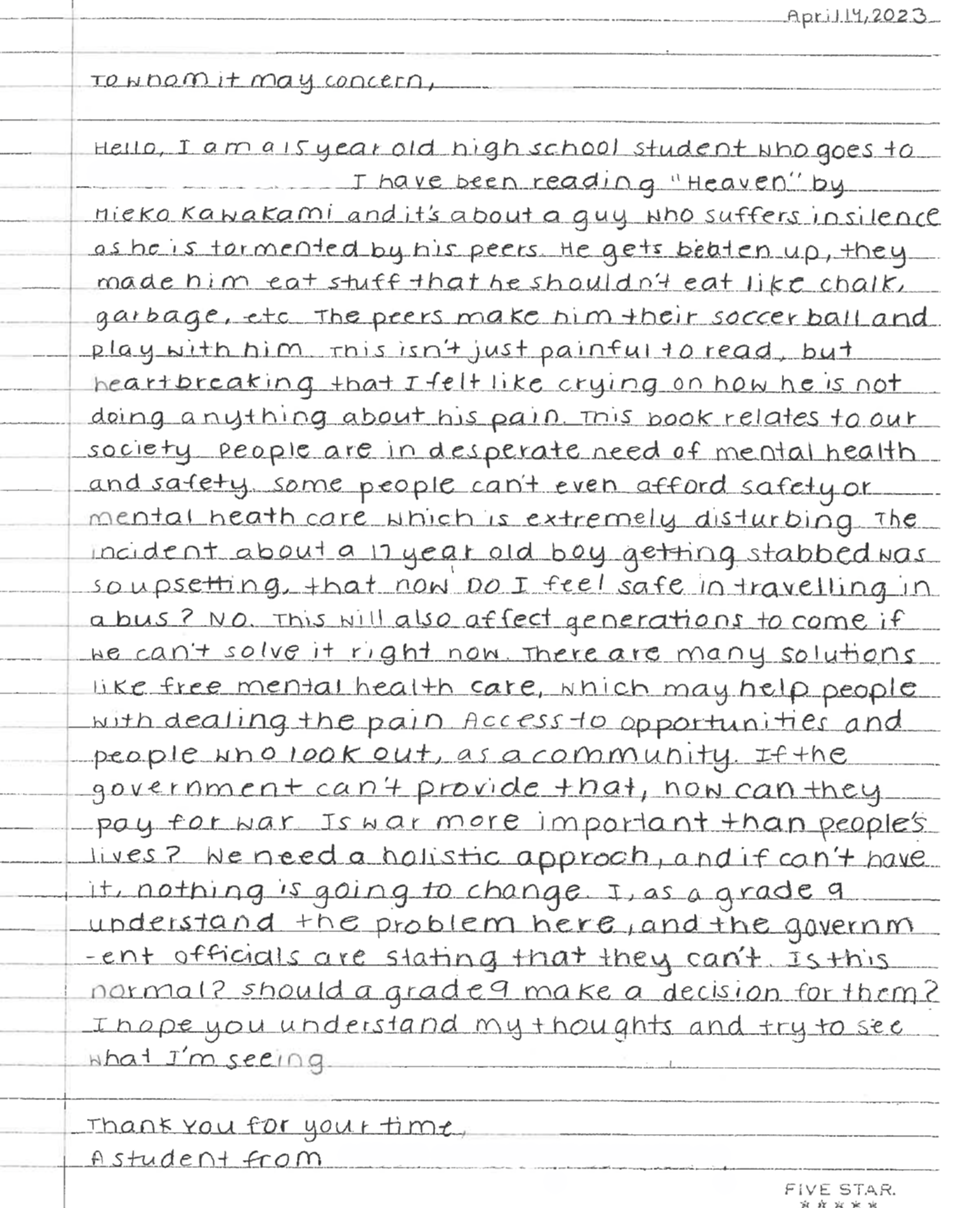
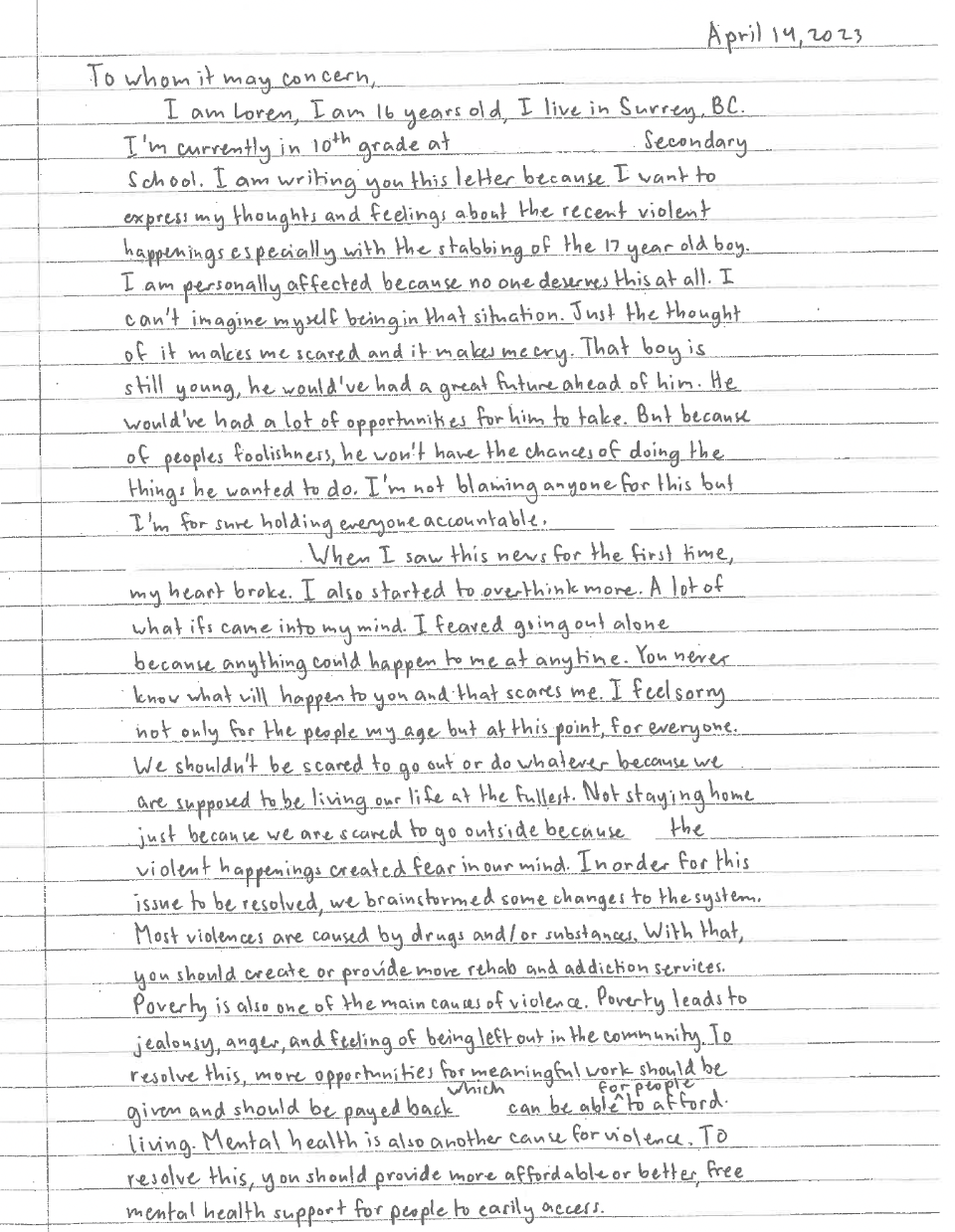
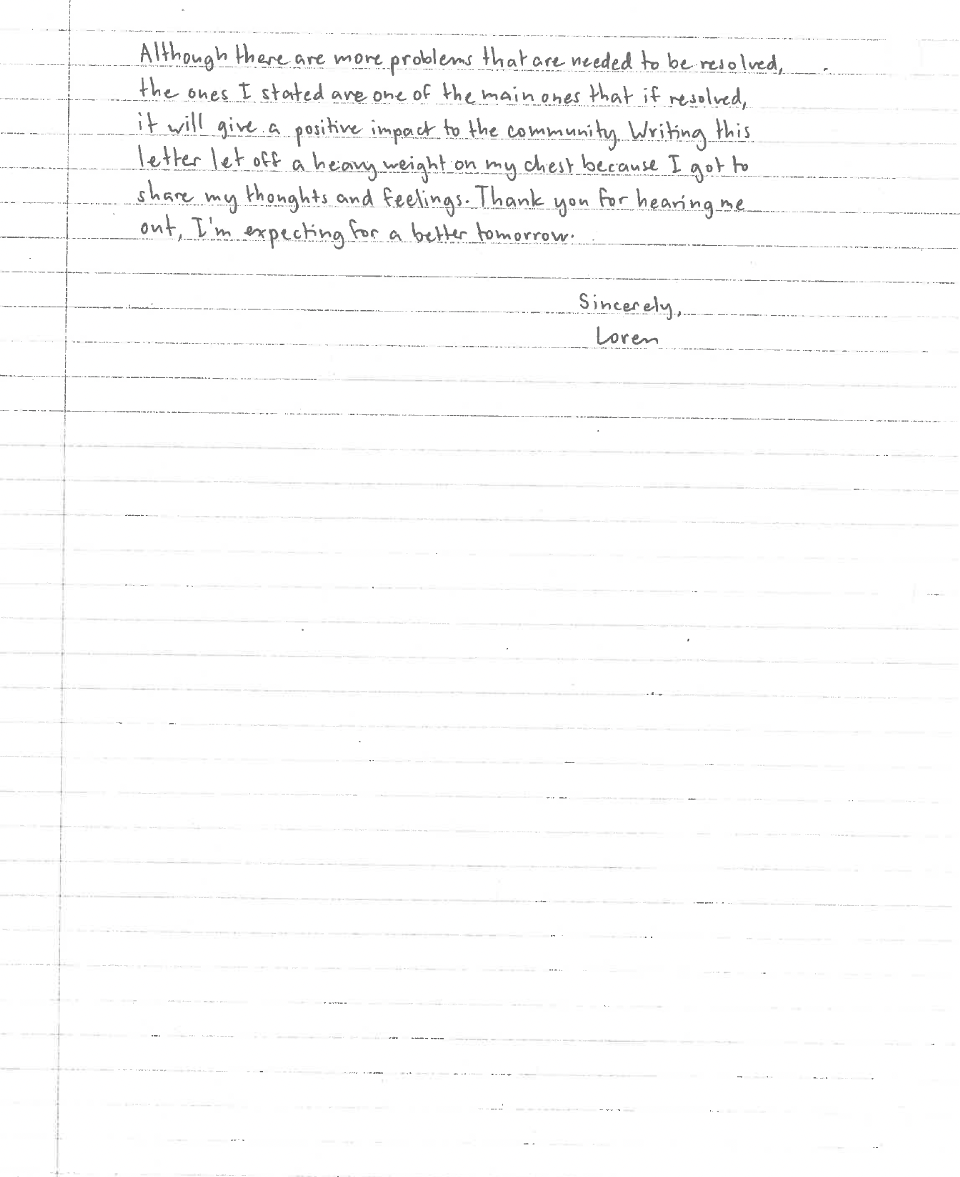
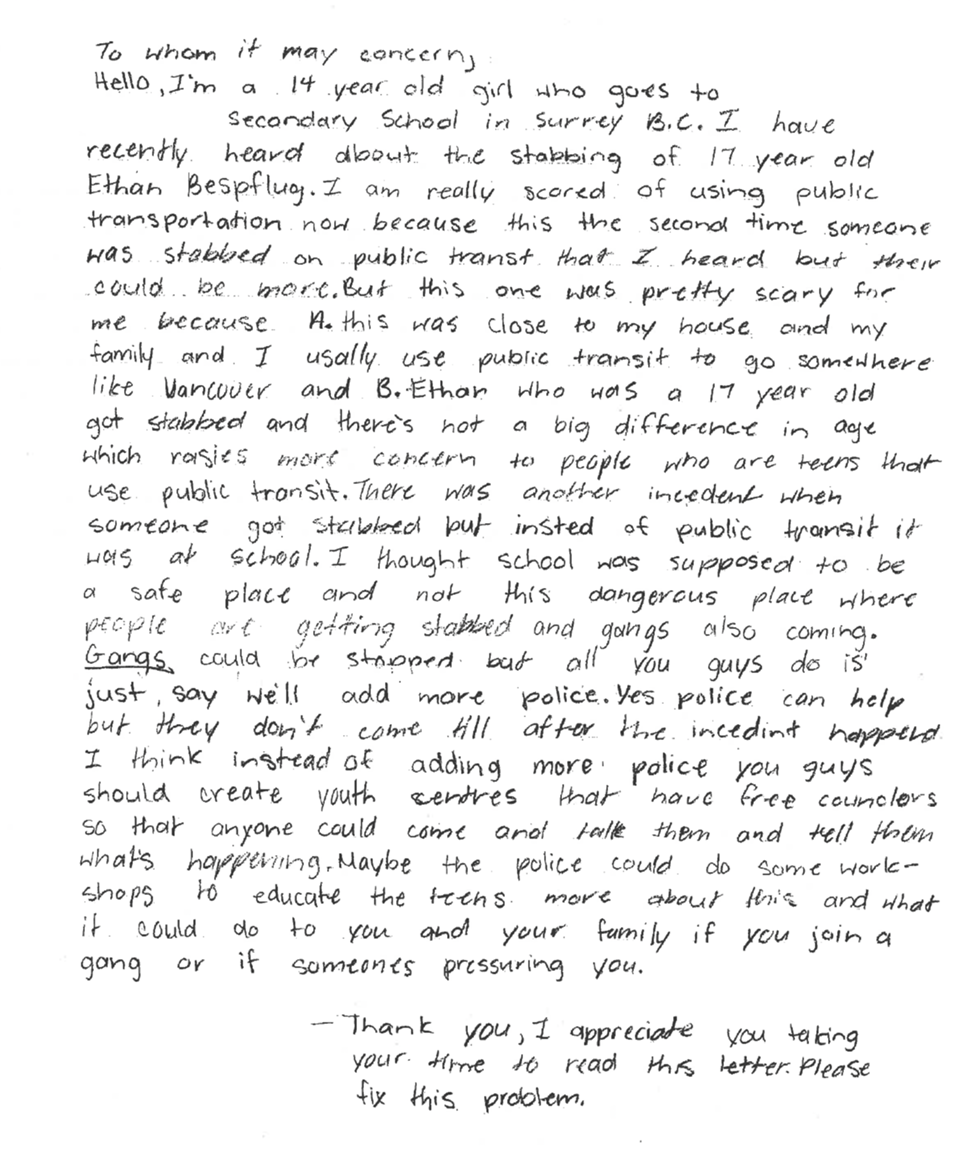












Tyee Commenting Guidelines
Comments that violate guidelines risk being deleted, and violations may result in a temporary or permanent user ban. Maintain the spirit of good conversation to stay in the discussion and be patient with moderators. Comments are reviewed regularly but not in real time.
Do:
Do not: